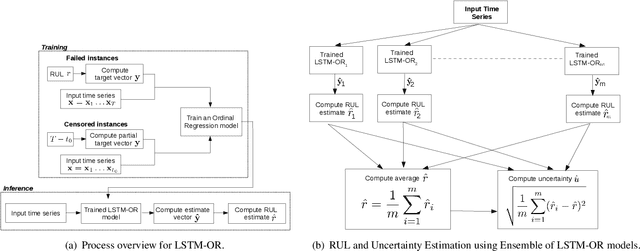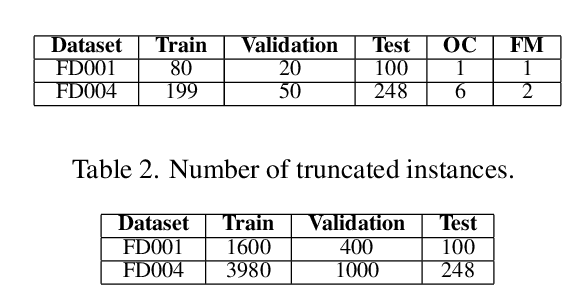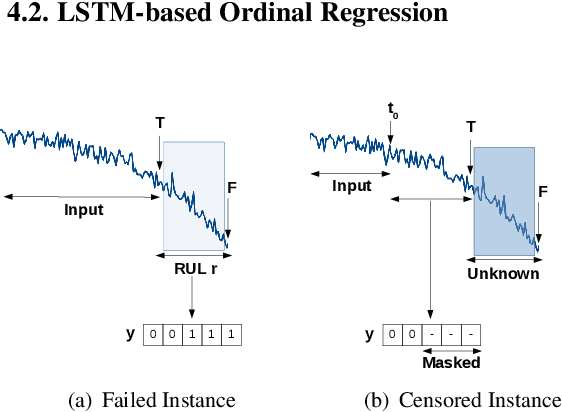Data-driven Prognostics with Predictive Uncertainty Estimation using Ensemble of Deep Ordinal Regression Models
Paper and Code
Apr 02, 2019



Prognostics or Remaining Useful Life (RUL) Estimation from multi-sensor time series data is useful to enable condition-based maintenance and ensure high operational availability of equipment. We propose a novel deep learning based approach for Prognostics with Uncertainty Quantification that is useful in scenarios where: (i) access to labeled failure data is scarce due to rarity of failures (ii) future operational conditions are unobserved and (iii) inherent noise is present in the sensor readings. All three scenarios mentioned are unavoidable sources of uncertainty in the RUL estimation process often resulting in unreliable RUL estimates. To address (i), we formulate RUL estimation as an Ordinal Regression (OR) problem, and propose LSTM-OR: deep Long Short Term Memory (LSTM) network based approach to learn the OR function. We show that LSTM-OR naturally allows for incorporation of censored operational instances in training along with the failed instances, leading to more robust learning. To address (ii), we propose a simple yet effective approach to quantify predictive uncertainty in the RUL estimation models by training an ensemble of LSTM-OR models. Through empirical evaluation on C-MAPSS turbofan engine benchmark datasets, we demonstrate that LSTM-OR is significantly better than the commonly used deep metric regression based approaches for RUL estimation, especially when failed training instances are scarce. Further, our uncertainty quantification approach yields high quality predictive uncertainty estimates while also leading to improved RUL estimates compared to single best LSTM-OR models.
 Add to Chrome
Add to Chrome Add to Firefox
Add to Firefox Add to Edge
Add to Edge